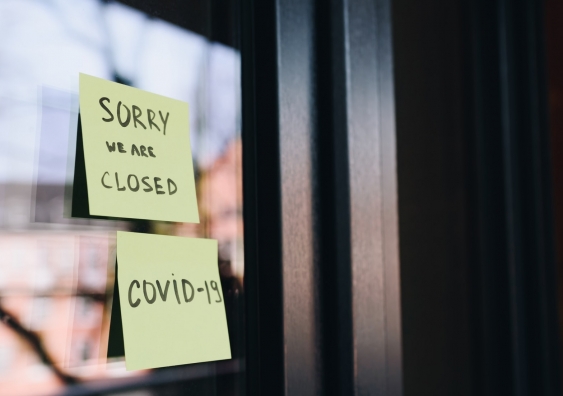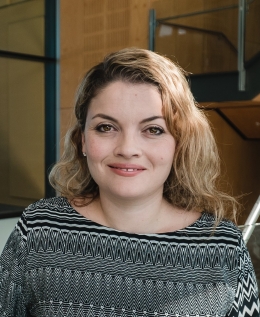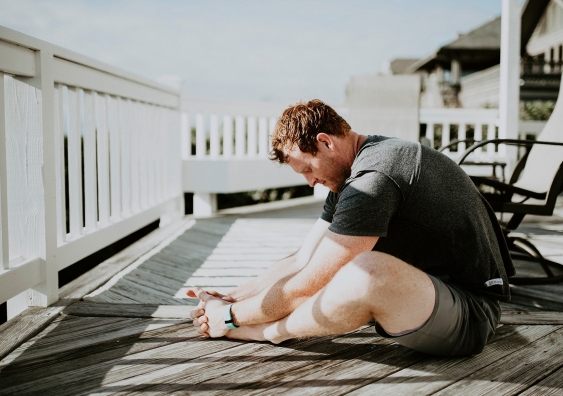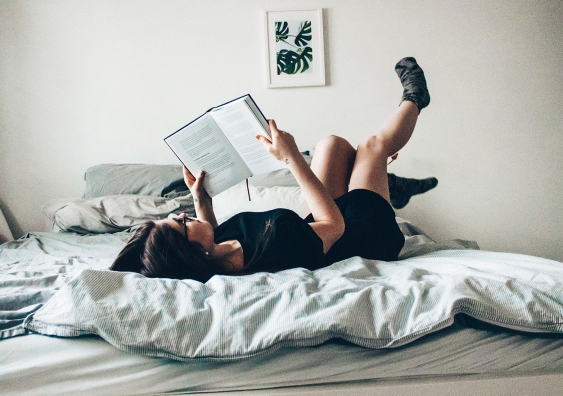Less than six months ago, Australia was covered in bushfires. Thousands were impacted directly and lost their homes, while many more were affected indirectly through smoke inhalation.
We used face masks to help us deal with poor air quality.
Mere months later – just when many are starting to rebuild their lives – we find ourselves amid the COVID-19 pandemic, reaching for face masks again.
“COVID-19 is an unpredictable global event that we all had to suddenly deal with,” says Dr Justine Gatt, a Senior Research Fellow in the UNSW School of Psychology and Group Leader and Senior Research Scientist at NeuRA.
“We had to suddenly learn how to work from home, how to home-school, or how to find different ways of spending our time when we could no longer go out and socialise – and that’s only for those who haven’t been directly impacted by the virus itself.
“To make it even harder, we still don’t know when, and if, the virus will ever end.”
Dr Gatt is an expert in resilience and wellbeing. She is currently researching how stressful life events like COVID-19 impact mental health. In her famous ongoing Twin Study, she follows sets of twins throughout their lifetimes to see how different life experiences affect people with the same genetics.
She says that stressful and unpredictable life events – of which there have been many lately – can be a test of our resilience strategies.
“When you’ve experienced something stressful, it puts to test the coping mechanisms you have available,” says Dr Gatt.
“Now is a chance to reflect on the ways you adapted to the pandemic, including the resources you called on.
“Were they effective in dealing with the problem and maintaining your mental health?”

Unpredictable life events like COVID-19 can put to test the resilience strategies you have available. Image: Unsplash.
More than just toughness
Unlike hardiness, resilience isn’t a trait or behaviour – it’s a process.
“Resilience isn’t just something you’re born with,” says Dr Gatt. “It’s the process of adaptive recovery from stress or trauma.
“In other words, it’s the steps we take to adapt positively after adversity.”
Wellbeing is closely linked with resilience – it’s the goal we are aiming to maintain. As these concepts can be hard to detangle, Dr Gatt uses the analogy of baking a cake.
“Imagine that you’re making a cake. Your wellbeing – your state of positive mental health – is the cake itself, while your resilience is the process of making the cake. The process requires a lot of different elements – the ingredients, the utensils, the oven and the kitchen.”
In real terms, your process might include self-care and finding healthy ways to cope with the stressor.
It could also include accessing ‘resiliency resources’, like support from family and friends or necessary medical/financial aid.
Learning to adapt positively

The best way to build resilience is to be adaptable and have a positive mindset, says Dr Justine Gatt. Image: Supplied.
Stress and trauma aren’t required to build our resilience, but they do ‘help’ the process.
“During the pandemic, many of us were provided a unique, once-in-a-lifetime experience to stop from our busy lives, slow down, and have a think about what makes our life meaningful,” says Dr Gatt.
“We had the opportunity to rethink our personal habits – the time we went to bed, what we ate, whether we exercised, and how we shared our personal time with our friends and family.”
Now that restrictions are starting to ease, Dr Gatt says we can try to learn from these lessons – but easing restrictions also bring new challenges to deal with.
People might be feeling increased fear about catching the virus, heightened anxiety about being in public places, or unease about returning to office spaces.
“For all these challenges, the best way to be resilient is to be adaptable and have a positive mindset,” says Dr Gatt.
“For example, when dealing with social anxiety, perhaps we can start with organising more social events in wide open spaces like parks, rather than gathering indoors.
“If we have a fear of catching the virus, then we need to be more vigilant when going out. This might include using masks or sanitiser and accepting this is our current normal – and that’s ok.
“When returning to work, we might have the chance to rethink how we can optimise the perks from working from home versus the office.”
Tips to improve your wellbeing and resilience
Dr Gatt highlights four areas that people can work on to build their own coping mechanisms. These areas are based on six different categories of wellbeing (composure, own-worth, mastery, positivity, achievement and satisfaction), which Dr Gatt and her team identified in a 2014 study.
However, as resilience is an adaptive process, she notes that these wellbeing measures can’t just be implemented once, but may need to be continually revisited depending on new life experiences and challenges.
1. Stress management

Try replacing negative coping strategies with positive ones, like yoga. Image: Unsplash.
Finding healthy ways to cope with stress is crucial to building resilience.
“Try to become aware of how your body typically responds to stress,” says Dr Gatt. “Do you get sweaty hands, a racing heartbeat, or a dry mouth? Do you become irritable and aggressive?”
If you notice a tendency to fall back on negative coping strategies, like excessive drinking or smoking, try to replace these with healthy strategies like running or yoga.
“When we become consciously aware of how we react to stress, we create an opportunity to change it.”
Other positive strategies could be trying to use humour instead of aggression, or active problem solving instead of denial and self-blame.
2. Building mastery
Many people have found themselves unemployed or working reduced hours due to COVID-19. They may need to find work elsewhere – sometimes in a new industry altogether.
To adapt to this changing work climate, Dr Gatt says that many people may need to rethink their strengths, talents and interests and ways they can proactively build on them.
“What are new skills you could master? Perhaps a hobby can be turned into a new profession? Engaging in these sorts of activities may take you out of your comfort zone, but they could bring a sense of achievement and fulfilment,” she says.
“Building on your skillset will also teach you how to manage controllable stressors, which could be useful when experiencing stress once again down the track.”
3. Optimising positivity

Did you rediscover any hobbies while physical distancing? Whether it’s reading, drawing, running or cooking, try to keep them up as you return to normal life. Image: Unsplash.
Now is an opportunity to ask yourself what it means to live a meaningful life.
“What are your passions? What are the things that truly bring your joy and happiness?” asks Dr Gatt. “COVID-19 has given you the chance to think about this. Now you need to implement it.”
Whether it’s baking cookies, reading a book or going for walks in nature, it’s important to identify those things and implement them regularly into your life.
Finding small ways to boost positivity – like photos, colours, plants and music – can also help to inject joy into homes and workspaces.
4. Maintaining self-care and self-worth
To be resilient and optimise our wellbeing, we also need to think about ways to maintain our self-care and self-worth, says Dr Gatt. This could be areas like sleep, diet, exercise, relaxation and self-compassion.
“As we start going back to normal, maintain the great regimes you established when you had more time at home,” she says.
Think about your resilience resources – friends, family and other sources of support – and don’t be afraid to call on them.
“It’s so important to reach out to family and friends for social and emotional support,” says Dr Gatt.
“Lastly, be kind to yourself. It’s so easy to beat up on ourselves or take out our frustration on others when stressed. What we really need to do is show compassion – for ourselves and for others.”













